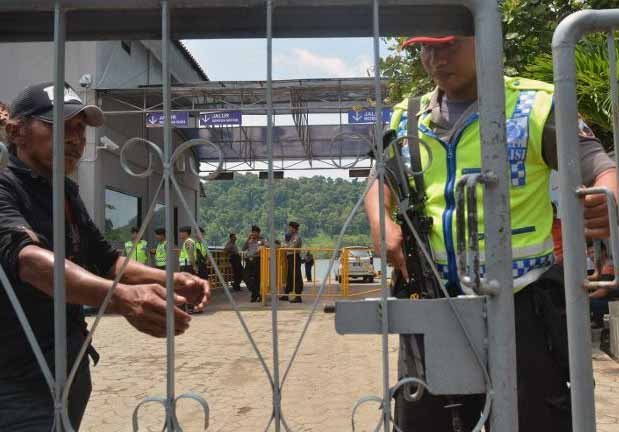The ICJ today calls for the immediate suspension of the execution of 10 individuals in Indonesia who have been convicted of drug-related offences and are scheduled to be executed by firing squad this month.
“We call on President Jokowi Widodo to reconsider his decision to deny the petitions for clemency submitted to him by these individuals,” said Sam Zarifi, ICJ’s Regional Director for Asia and the Pacific. “This recent rash of executions of drug offenders violates international law and, based on experience around the globe, will not even address the real problems of drug-related crime in Indonesia.”
“The execution of these individuals would violate Indonesia’s obligations as a party to the International Covenant on Civil and Political Rights, and goes against the global trend towards the abolition of the death penalty,” Zarifi added.
According to a report by the UN Secretary General to the General Assembly in 2012, 150 of the 193 UN Member States have either abolished the death penalty or introduced a moratorium on it.
More recently, the UN General Assembly adopted a resolution calling for an international moratorium on the use of the death penalty.
The resolution, which was passed last December 2014, was supported by 117 member states.
This is a notable increase since the resolution was first adopted in 2007, when only 104 member states voted “yes”.
Earlier this year, six persons convicted of drug trafficking offences were executed by firing squad.
These executions, like those planned for the 10 later this month fly directly in the face of the findings and recommendations of the UN Human Rights Committee.
Following its review of Indonesia’s implementation of its obligations under the ICCPR in 2013, the Human Rights Committee recommended that the Government of Indonesia commute all death sentences imposed on persons convicted of drug offences, amend its laws to ensure that drug offences are not punishable by the death penalty, and to reinstate the moratorium on executions.
The ICJ also notes that the current spate of planned executions in Indonesia is inconsistent with the actions of the Government of preventing the executions of its nationals convicted of committing crimes abroad.
For example, in April last year, the Government of Indonesia paid US$2.1 million as so called ‘blood money’ to stop the execution of an Indonesian woman who had been working as a domestic helper in Saudi Arabia and was convicted of killing her elderly employer.
In addition to calling for the suspension of the planned executions, the ICJ calls on the Government of Indonesia to immediately re-establish a moratorium on the death penalty implemented from 2008 until 2013, when it resumed executions, and to take the steps necessary to abolish the death penalty.
The ICJ opposes death penalty for all crimes and considers its imposition a violation of the right to life and the right not to be subjected to cruel and inhuman treatment or punishment.
The 10 individuals scheduled to be executed are: Mary Jane Fiesta Veloso (Philippines); Myuran Sukumaran, aka Mark, (Australia); Serge Areski Atlaoui (France); Martin Anderson, aka Belo, (Ghana); Zainal Abidin (Indonesia); Raheem Agbaje Salami (Spain); Rodrigo Gularte (Brazil); Andrew Chan (Australia); Silvester Obiekwe Nwolise and Okwudili Oyatanze (both from Nigeria).
Contact:
Sam Zarifi, ICJ Regional Director for Asia and the Pacific, e sam.zarifi(a)icj.org or m +668 07819002
(Photo: Indonesian police at execution site).





